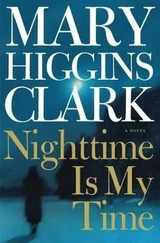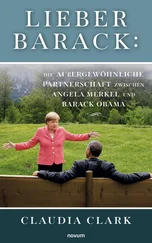My mouth opened to reveal a woozy smile, even though I didn’t quite understand it all just yet. I had been a student of the culture, though. When I’d been transplanted to my father’s New Jersey in the middle of the seventh grade, I’d had an accent as thick as the frames of the glasses given to me by National Health. There had been only one way for me to fit in: to sit in front of the TV and take notes. So in the company of boys no one else would befriend at Joyce Kilmer Junior High School, a ragtag crew of asthmatics and ninety-seven-pound weaklings who visited the same uninspired barber and were constantly wiping at their noses, I took in horror movies on Friday nights, baseball games on Saturday afternoons, and westerns any chance I could get. For my friends it was mere entertainment, but for me — a cultural reeducation camp. I learned the difference between Deputy Dawg and Huckleberry Hound, and mimicked the voices of Elvis Presley and John Wayne. Finally, near the start of my sophomore year (when, tragically, I learned an English accent would have helped me fog the back windows of a Chevy Bel Air), I had so thoroughly cleansed myself of my past that you would have known I’d once lived in England only if you’d pumped me full of sodium pentothal and asked me arcane trivia questions about the Queen.
“You’re just what we need,” Ernst was saying. “When others were watching TV, you had a pencil in hand and a pad of paper at the ready. You’ve been a scholar longer than any Ph.D.”
Later, I’d learn that as a young child in Germany, Ernst Eberhardt had been given the nickname “Sonny Boy” because of his blond hair. People had stopped calling him that in the thirties, when Al Jolson’s Jewish heritage had made the pet-name problematic, but on this afternoon it was perfectly suited to him. His hair wasn’t a muted grey anymore; it appeared to me as a transcendent burst of light, one I would have gladly thrown myself into.
Ernst pushed himself up with the help of his cane, asking — and he apologized for having to do so — if I was taking any medication. I told him I had stopped a couple of weeks before.
“It’s easy to do if you’ve seen the right movies or TV shows,” I said.
My answer seemed to please him. He led me to the double doors, saying he’d like me to do one thing before we met for a final follow-up interview: write a three-thousand-word essay on sugarless bubble gum, the use of cut fruit in molded Jell-O, and the love songs of Gordon Lightfoot.
“You are aware that Mr. Lightfoot is a Canadian?” I said, and hearing this, Ernst pumped my hand more swiftly, smiling as he told me he had a good feeling about this.
Two Sundays on from this he was back and fanning his face with my over-caffeinated prose, telling me I’d need to come in and get fitted for a lab coat. I almost cried as he slapped me on the back and congratulated me. It had been one hell of a year. I just wanted to start over. I certainly didn’t want to question my good fortune or his logic in interviewing me at Greystone Park. It’s called dumb luck for a reason. If you get too smart, if you think about it too long, it just might disappear. “You won’t be sorry for this,” I told him, as we moved out past the nurses’ station and continued down a hallway lit on one side by a long row of windows. “I’ll give you everything I’ve got.”
He nodded, and then we shook hands once more and I watched him walk out through a final set of double doors, beyond which was the hospital’s main entrance.
It was then that I heard the voice.
“David,” it said.
Betty rose from a hard plastic chair pushed up against the wall, then turned this way and that to show off her new figure. One of my legs buckled; the knee felt like a pancake on a cushion of maple syrup. “Oh, Betty,” I said. Because she looked like a young co-ed again. Her hair was done, and she wore heels and a form-fitting navy blue skirt that showed off plenty of leg.
She came over smiling. “How’s my man?”
I fell into her as if throwing myself into an abyss.
“I’m so sorry,” I said. “I only ever wanted to provide for you.”
“Hush,” she said. “Don’t worry. Just tell me you’re ready to come home.”
I pushed her back at arm’s length, looking her in the eyes.
“I was a self-admit,” I reminded her. “I just have to pack a bag.”
ERNST EBERHARDT FOUNDED FlavAmerica (the “a” in “Flav” rhymes with “crave”) in 1949, the same year he became a naturalized citizen of the United States. He certainly didn’t lack the expertise to lead such a company. Before his skills were reappropriated by the war effort, he had been employed as a flavor chemist by Pabst, Pfaff & Pfeiffer in Wiesbaden. Talent, however, only gets you so far, as he learned while struggling through his first year of business in America. He had no connections here, no network of friends and colleagues to call upon as he would have had in Germany had Hitler not reconfigured his future. Sales were so poor he finally called Food & Flavor magazine to pull the ad he’d been running at a cost of five dollars per issue. He couldn’t afford it anymore. He was going to take down the tri-colored sign hanging over his front door and return to the rubble of his homeland, where at least he’d be able to understand the bus driver and buy a decent schnitzel on the street corner.
The salesman who fielded his call that day would have reacted differently if Ernst had asked to open an account. But because he was ending his relationship with the magazine, he didn’t see the harm in saying what he said: “I can’t help but notice your accent. You didn’t happen to serve in the war, did you?”
It was then that Ernst first used the line that three generations of American flavor chemists would come to know: “Serve? I didn’t just serve in the war, I served Hitler his dinner!”
Before this, he hadn’t told anyone about his life in Germany, least of all how he’d been assigned to the bunker in the last days of the war to lift Hitler’s spirits by delivering more concentrated flavors to his food. But he too saw no reason to hold back at this point, so he entertained the salesman until finally the man interrupted him, saying he’d like to pass this call on to a reporter. It happened so quickly that Ernst barely had the time to realize his good fortune. The reporter came to visit him that same week with a photographer at his side, and by the middle of the next month, the cover story was going out in the mail to more than three thousand institutional subscribers. ERNST EBERHARDT, the headline read. FROM HITLER’S BUNKER TO FLAVAMERICA!
“Ever since,” Ernst said on my first day on the job, “the phone hasn’t stopped ringing.” We stood in his office, beneath the framed cover of Food & Flavor magazine which he kept hanging on the wall by the door. “Even now everyone loves to talk about Hitler. ‘Did he like cats or dogs?’ ‘Was he really a vegetarian? I find it strange he didn’t eat pork.’ What am I supposed to do? I talk. I tell them everything I know, and sometimes”—he smiled—“a thing or two I don’t, because at the end of each conversation I can expect an order. Back then, I needed everything I could get. My client list began and ended with an ice cream shop in Queens — barely enough business for a good night of beer, let alone a career. But now look at us.”
He led me out through the front foyer and down a blue-carpeted hallway into the flavor development studio, a humble lab that had an E-shaped work station running the length of one wall. One flavorist stood working at the granite counter-top, holding a glass pipette over a test tube. A cluster of small brown bottles stood near his work station; hundreds of others crowded the tiered shelves that lined the walls. “I hope you’ll soon feel proud to be working among us,” Ernst said, giving a squeeze to my forearm. “We may not land the biggest contracts or hold the fanciest employee retreats.” Here the flavorist looked up from his test tube, his eyes widening beneath the pair of protective goggles that he wore. “Hello, Holiday Inn Newark!” he said. “We just put our heads down,” Ernst told me, turning us back toward the door, “and do our part to make palatable all the foods and beverages that drive today’s fast-paced lives and economies. We make ourselves useful, yes? And there’s nothing wrong with that.”
Читать дальше












